Month: October 2025
RFA suspends remaining editorial operations amid funding uncertainty
Protective measures taken with hope of rebuilding news operations in future WASHINGTON – With the government shutdown and delay in receiving funding for the new fiscal year, effective Oct. 31, Radio Free Asia (RFA) will halt all production of news content for the time being. The move is part of a plan for the Congressionally-funded private corporation to implement cost-saving measures that can help sustain the organization should appropriated funding streams resume. President and CEO Bay Fang issued the following statement: “Because of the fiscal reality and uncertainty about our budgetary future, RFA has been forced to suspend all remaining news content production – for the first time in its 29 years of existence. In an effort to conserve limited resources on hand and preserve the possibility of restarting operations should consistent funding become available, RFA is taking further steps to responsibly shrink its already reduced footprint. “This means initiating a process of closing down overseas bureaus and formally laying off furloughed staff and paying their severance – many of whom have been on unpaid leave since March, when the U.S. Agency for Global Media unlawfully terminated RFA’s Congressionally appropriated grant. “However drastic these measures may seem, they position RFA, a private corporation, for a future in which it would be possible to scale up and resume providing accurate, uncensored news for people living in some of the world’s most closed places.” During its tenure, RFA’s groundbreaking reporting on the Uyghur genocide in Xinjiang, the CCP’s cover-up of COVID-19 fatalities, the unfolding crisis in Myanmar since the 2021coup, Chinese hydropower projects in the Tibetan regions, and the journeys of North Korean defectors has built a public record of transparency in some of the world’s most repressive places, holding autocrats and elites accountable to their people and internationally. Other measures to conserve resources on hand include ending leases of overseas offices and bureaus in Dharamsala, Taipei, Seoul, Istanbul, Bangkok, and Yangon. In the last five years, RFA created new editorial units focused on China’s malign influence in the Indo-Pacific region and globally, investigating PRC secret police stations in the United States and Europe, election interference by the Chinese Communist Party in Taiwan and other Asian countries, and PRC influence operations in Pacific island countries. RFA’s incisive brand of journalism has made it and its journalists a constant target, with its reporters facing pressure and threats since its inaugural report in Mandarin was heard in China on Sept. 29, 1996. Authorities in China, Vietnam, Myanmar, and Cambodia have detained family members, sources, reporters, and contributors. Listeners in North Korea have been severely punished and reportedly executed for accessing RFA’s reports. Nevertheless, RFA’s journalistic operations have until now withstood government intimidation and attacks. In the months since the USAGM illegally terminated its Congressionally appropriated grant to RFA, and despite layoffs and furloughs that diminished editorial staff by more than 90%, the private grantee has continued to fulfill its Congressional mandate to provide accurate, timely news to people living in some of the most closed media environments in Asia thanks to a preliminary injunction issued by the United States Federal District Court for the District of Columbia, which USAGM has appealed. RFA has also continued to win awards for its reporting, including two national Edward R. Murrow awards in August and a Gracie Award in March. While many services, including RFA Uyghur and Tibetan, have already gone dark, others have continued to produce limited output, including RFA Burmese, Khmer, Korean, Mandarin Chinese, and Vietnamese. But these will cease on Oct. 31. We are : Investigative Journalism Reportika Investigative Reports Daily Reports Interviews Surveys Reportika
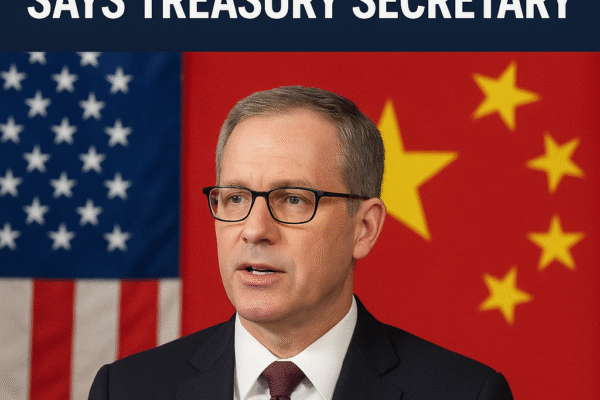
U.S. and China Poised to Avert 100% Tariff as Trump-Xi Meeting Nears, Says Treasury Secretary
The U.S. and China appear close to averting a 100% tariff showdown after Treasury Secretary Scott Bessent said a “substantial framework” has been reached. Trump and Xi are expected to meet this week in South Korea to finalize details of the deal.
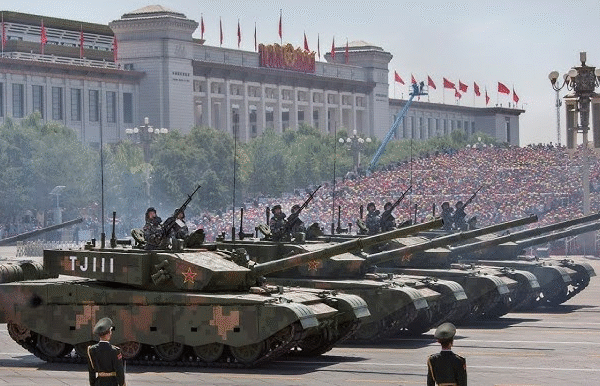
From Enforcer to Powerbroker: Zhang Shengmin’s Rise Amid China’s Military Crackdown
China has named veteran anti-corruption enforcer Zhang Shengmin as the second-ranking vice chairman of the Central Military Commission, days after nine generals were purged. The appointment marks a deeper consolidation of Xi Jinping’s power over the military.
Myanmar junta says it seized 30 Starlink receivers in scam center raid
Myanmar’s junta said on Monday it raided one of the country’s most notorious cyberscam centers and seized Starlink satellite internet devices. Myanmar government media The Global New Light of Myanmar said the military “conducted operations in KK Park near Myanmar-Thai border” and had “seized 30 sets of Starlink receivers and accessories,” according to the AFP news agency. AFP said that number is only a fraction of the Starlink devices they identified using satellite imagery and drone photography. On the roof of one building alone in KK Park, images showed nearly 80 of the internet dishes. This Sept. 17, 2025, photo shows what appears to be Starlink satellite dishes on the roof in the KK Park complex in Myanmar’s eastern Myawaddy township, as pictured from Mae Sot district in Thailand’s border province of Tak.(Lillian Suwanrumpha/AFP) The U.S. Congress’ Joint Economic Committee told the AFP news agency they have begun an investigation into Starlink’s involvement with the centers. While it can call owner Elon Musk to a hearing, it cannot compel him to testify. Starlink parent company SpaceX did not immediately respond to a request for comment on Monday. In this Feb. 20, 2025, image released by the Chinese government, a group of 200 Chinese citizens suspected of involvement in scam centers are returned to Nanjing, China under the escort of Chinese police after being repatriated from Myawaddy in Myanmar.(Yin Gang, Xinhua via Getty Images) With reporting by AFP. We are : Investigative Journalism Reportika Investigative Reports Daily Reports Interviews Surveys Reportika
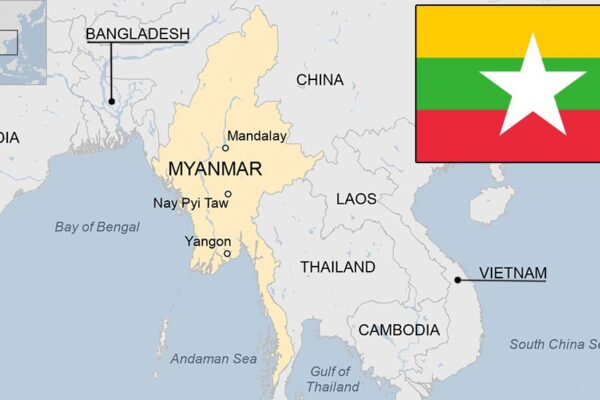
Myanmar junta admits it’s unable to conduct election across entire country
The European Union’s Special Representative for Human Rights Kajsa Ollongren said on Thursday that they would not send observers to an election in military-ruled Myanmar, as it was unlikely to result in a credible outcome, according to the Reuters news agency. It follows Myanmar junta chief Min Aung Hlaing admitting on Wednesday that the military-backed administration will be unable to conduct an upcoming general election across the entire country, as a civil war triggered by a 2021 coup rages on. Detained Myanmar State Councilor Aung San Suu Kyi and president Win Myint during their first court appearance in Naypyidaw, May 24, 2021.(Myanmar Ministry of Information via AFP) The military doesn’t control all of Myanmar. Vast swaths are administered by a range of armed militias, ethnic groups and pro-democracy fighters, some in open, armed conflict with the ruling junta. The junta has invited ASEAN countries to send observers for the election, due to start on December 28 and to continue in phases into January. We are : Investigative Journalism Reportika Investigative Reports Daily Reports Interviews Surveys Reportika
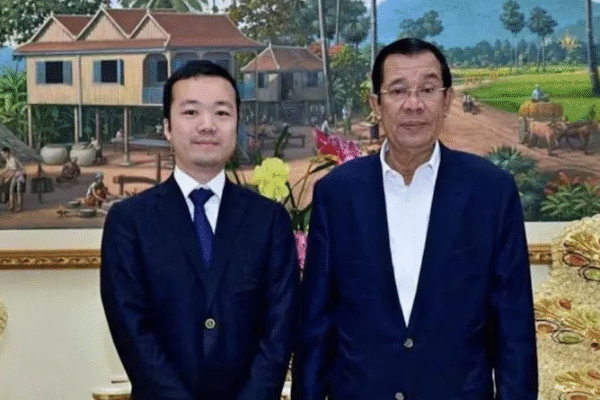
US, UK sanction Cambodian conglomerate, alleging role in scam networks
The U.S. and British governments on Tuesday announced a sweeping crackdown on cyber-scam networks in Southeast Asia accused of luring workers with fraudulent job ads or fake romantic relationships, forcing them to extract billions from people across the world through a range of deceptions, then laundering the money they received.
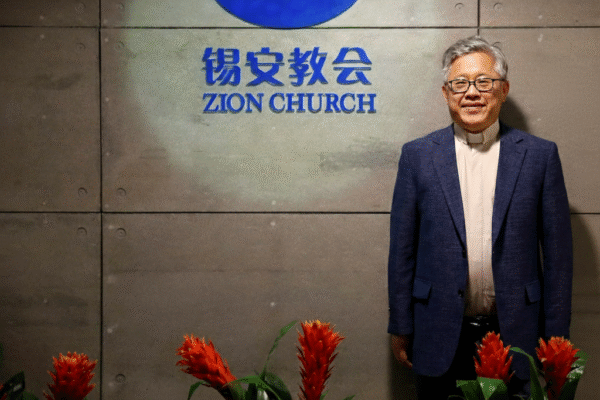
China Arrests Founder of Prominent Underground Church in Multi-City Crackdown
Chinese authorities have detained Zion Church founder Jin Mingri and dozens of members in a nationwide crackdown on unregistered house churches, raising concerns over religious freedom and state control.
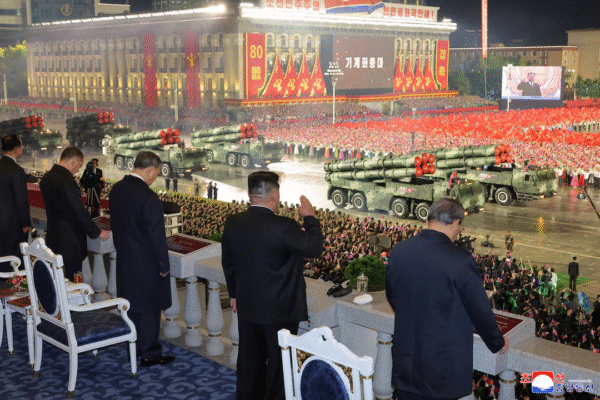
North Korea shows off new intercontinental missile at military parade
Nuclear-armed North Korea displayed its most advanced Hwasong-20 intercontinental ballistic missile, described by the North Korean government as the country’s “strongest nuclear strategic weapon system,” state media said on Saturday.
North Korean soldiers who fought with Russian troops against Ukraine celebrated
North Korean soldiers who fought alongside Russian troops against Ukraine marched through Kim Il Sung Square on Friday, carrying the flags of Russia and North Korea as part of the Workers’ Party 80th Anniversary celebrations. Video: North Korea soldiers who fought alongside Russia celebrated at Workers’ Party anniversary The soldiers marched to the Russian patriotic song “To Serve Russia,” a rare and symbolic display of solidarity between Pyongyang and Moscow. According to estimates, around 2,000 North Korean soldiers were killed while supporting Russia’s war in Ukraine. And reports say that under a new deployment plan, North Korea recently sent another 1,000 combat engineers to Russia. Although the event marked the 80th anniversary of the founding of the Workers’ Party, it was also a display of military cooperation between the two countries. Dmitry Medvedev, Deputy Chairman of the Security Council of the Russian Federation, attended the celebrations in Pyongyang. North Korean leader Kim Jong Un speaks with Deputy Chairman of the Russian Security Council and leader of the United Russia political party Dmitry Medvedev as he visits the country for an event marking the 80th anniversary of the founding of the ruling Workers’ Party of Korea (WPK), in Pyongyang, North Korea, October 9, 2025, in this pictured released October 10, 2025 by North Korea’s official Korean Central News Agency.He thanked North Korea for what he called its “steadfast support” for Russia’s ongoing military operation in Ukraine. At Pyongyang’s May Day stadium Russian singer Shaman performed a tribute to the soldiers who fought in Kursk. Kim Jong Un and the audience rose from their seats to honor the soldiers. The parade highlighted the partnership between Moscow and Pyongyang. As the song “To Serve Russia” played across the square, the message was clear: an old alliance is being reshaped for today. We are : Investigative Journalism Reportika Investigative Reports Daily Reports Interviews Surveys Reportika
- 1
- 2


